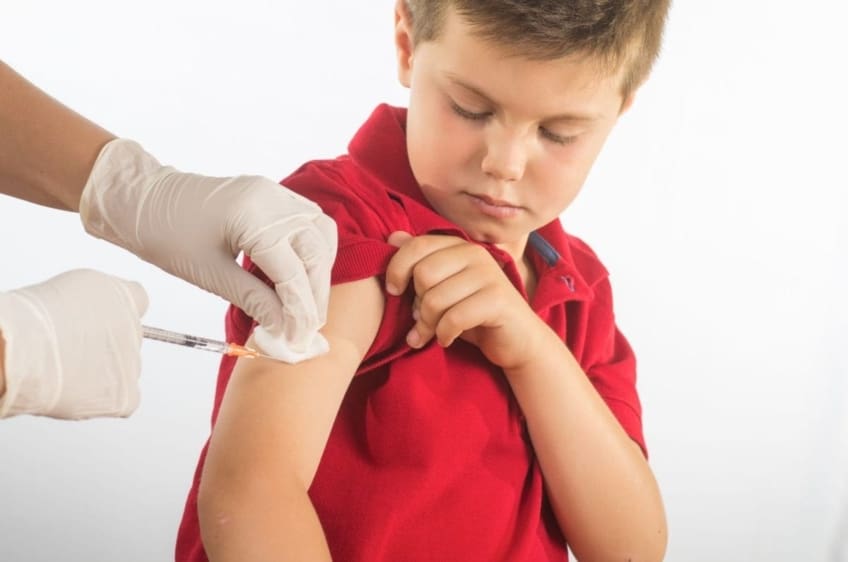
Poliomyelitis (polio) is a serious illness that is caused by a virus. The virus can be spread through contact with an infected person. This is most often done through virus in stool or oral discharge. The virus also can live on infected surfaces or in food and drink. Polio can cause paralysis (when you can’t move your arms and legs) or even death.
Before the 1950s, thousands of children got polio each year. Fortunately, the use of the polio vaccine has made the disease very rare in most parts of the world.
Path to improved health
Today, you can keep your children from getting polio by making sure they get the vaccine.
The purpose of a vaccine is to prevent you from getting a specific disease. The polio vaccine is called the inactivated poliovirus (IPV). It is given by injection (shot).
Most children get 4 doses of polio vaccine on this schedule:
- First dose when they are 2 months old
- Second dose when they are 4 months old
- Third dose when they are 6 to 18 months old
- Last dose (booster) when they are 4 to 6 years old
Vaccines carry a low risk of harm, but side effects can occur. As with all vaccines, your child may have some pain or redness at the site of the shot. A severe allergic reaction is rare. The polio vaccine does not cause the illness. For best results, make sure your child gets all 4 doses.
Things to consider
Your child should not get the polio vaccine if he or she is allergic to some medicines. These include neomycin, streptomycin, and polymyxin B. Your child also should not get it if he or she is sick. Tell your doctor about any illness and get the shot when your child is feeling better.
Talk to your doctor if you or your child is traveling to a place where polio still exists as a disease. They may suggest an advanced vaccine schedule or booster shot.
When to see your doctor
Most kids have no problems with the polio vaccine. However, call your doctor if your child has any reaction after getting the vaccine. Call 911 or go to the hospital if your child:
- Gets hives (bumps, swelling, itching, or burning on their skin)
- Has trouble breathing
- Goes into shock (becomes weak, cold, damp, or sweaty)
- Loses consciousness
Tell the doctor when (day and time) your child received the vaccine. You also should file a Vaccine Adverse Event Report form with the Centers for Disease Control and Prevention (CDC). Ask the doctor to do this, or you can call 800-822-7967.
Questions to ask your doctor
- Why does my child need the polio vaccine?
- What could happen if I don’t get my child vaccinated?
- When should I schedule each dose of the vaccine?
- Do adults need to get the polio vaccine?
Resources
Centers for Disease Control and Prevention: Polio Vaccination
![]()
Copyright © American Academy of Family Physicians
This information provides a general overview and may not apply to everyone. Talk to your family doctor to find out if this information applies to you and to get more information on this subject.







